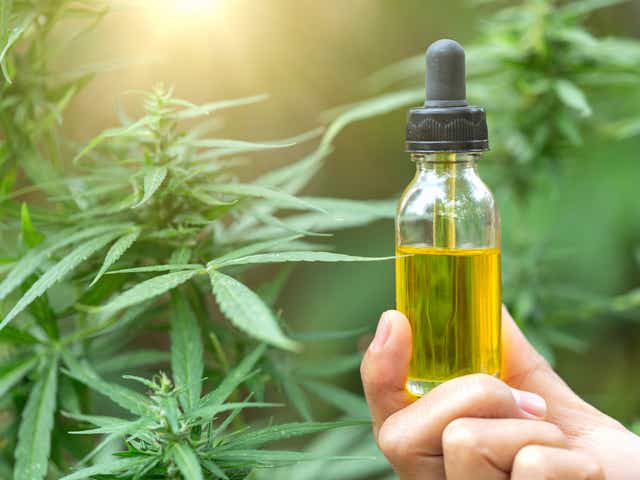CBD is an active ingredient of the hemp plant that contains many valuable ingredients, trace elements, and vitamins. Especially in recent years, CBD has become increasingly popular and is now used in various products such as CBD oil. CBD is not psychoactive, which means it has no intoxicating effect. However, it has a decamping, analgesic, and anti-inflammatory effect and is therefore often used as an alternative to painkillers or sleeping pills. We tell you in this article, how exactly CBD works, what it helps against, how to use it correctly, and what side effects can trigger an incorrect application.
What is CBD oil?
The hemp plant contains various active ingredients. Among the best known are THC and CBD. While THC is a psychoactive substance that is illegal in Austria due to its intoxicating effects, CBD is legal. Cannabidiol, or CBD for short, is not psychoactive but achieves a number of other positive effects. To extract the CBD from the plants, only varieties are bred in which the CBD content remains particularly high and the THC content, as required by law, remains below 0.3 percent. In total, there are about 50 varieties that ensure a very high CBD content. They are specified in a seed catalog of the EU.
CBD oil contains many valuable ingredients such as minerals, trace elements, vitamins, proteins, fiber, and unsaturated fatty acids, and the various cannabinoids it contains can make the oil particularly rich in nutrients. CBD oil has neither a psychoactive effect nor does it make you “high”. Rather, it has a decongestant, analgesic, and anti-inflammatory effect. In addition, CBD has a calming and anxiety-relieving effect.
In addition to cannabidiol, natural full-spectrum CBD contains over 100 other cannabinoids as well as terpenes and flavonoids. This can lead to a so-called entourage effect during use. The THC content is less than 0.3 percent. The combined effect of these active ingredients is stronger than the respective possible individual effects.
Broad-spectrum CBD is very similar to full-spectrum CBD but contains no THC at all. CBD Isolate is CBD crystals that have been isolated in the laboratory. Therefore, it does not contain any other cannabinoids. Thus, there is also no entourage effect as with full-spectrum or broad-spectrum CBD.
There is no CBD in commercial hemp oil. Unlike medical hemp, CBD oil is commercially available without a prescription from a doctor.
CBD products are available in varying concentrations. How much CBD is contained depends, among other things, on the hemp variety and whether the manufacturer concentrates the oil.
What CBD products are available besides CBD oil?
CBD is available in various forms. CBD oil in drop form is particularly popular because it is absorbed through the mucous membranes and acts particularly quickly. CBD in capsule form has the advantage that it is relatively tasteless because you can swallow the capsules whole.

For external use, CBD is available in the form of pastes, ointments, or creams and is suitable for treating various skin problems. If you want to make your own CBD oil, liquid, or paste, cannabidiol crystals are also available in stores. They contain CBD in a highly concentrated form. CBD is also becoming increasingly popular in the beverage trade. CBD liquid can also be vaporized in e-cigarettes.
The duration of CBD absorption depends primarily on the form of administration. Inhalation by smoking, such as in a cigarette or vaporizer, is the fastest form. The first effects appear after a few minutes, and the peak is reached after about 30 minutes. Then the effects slowly subside for two to four hours. When absorbed through the (oral) mucosa, the effect lasts between three and six hours. When absorbed via the gastrointestinal tract, it takes the longest time for effects to become apparent. However, the effect then lasts for six to eight hours.
To get more important information about CBD Oils, you can visit Natural Health Woman CBD for further info.
